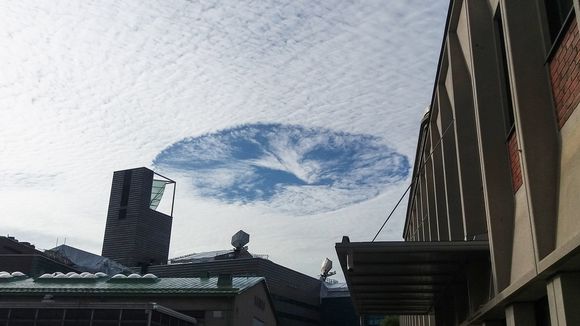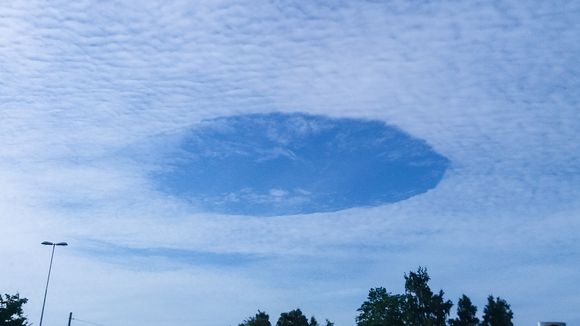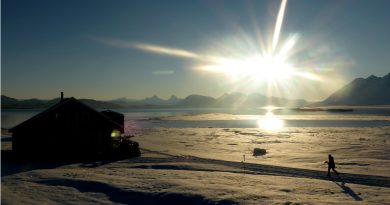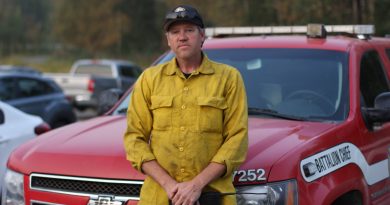Hole in the clouds : Rare skypunch forms over Finland

A fallstreak hole – literally a gap in the clouds – was observed over Helsinki on Wednesday morning. Yle meteorologist Seija Paasonen called it the “most beautiful one she’s ever seen”. Skypunches are often caused by aeroplanes.
Puzzled residents of Southern Finland gazing at the skies on Wednesday morning may have noticed a large, uncommon patch of blue in the middle of a thin mass of cloud. The phenomenon, known as a fallstreak hole or skypunch, gained immediate traction as users posted numerous images of the striking gap on social media.
Fallstreak holes are formed when supercooled water in the clouds reaches temperatures below 0 degrees Celsius, but does not freeze. Forming ice crystals cause water droplets around them to evaporate, causing a circular or elliptical hole. Aeroplanes passing through clouds have been known to cause cloud holes.

Yle meteorologist Seija Paasonen observed the momentary skypunch around 8 am.
“After about ten minutes, some thin, high clouds began to cover the gap. At about 8:20 am the hole was almost covered up,” she says.
Paasonen estimates that the fallstreak hole occurred at an altitude of some 6-8 kilometres.
So-called holepunch clouds are not exactly uncommon, the meteorologist says, but still rare as the phenomenon only occurs a few times a year.
What made this hole special was its symmetrical, uniform shape.
“This is the most beautiful one I’ve ever seen,” Paasonen says.
Related stories from around the North:
Canada: Obituary for an Arctic river, blog by Mia Bennett
Finland: Can Finland’s cool weather be a future tourist draw?, Yle News
Greenland: Greenland earthquake and tsunami – hazards of melting ice?, blog by Irene Quaile, Deutsche Welle
Norway: As Arctic weather dramatically changes, world meteorologists take on more joint forecasting, The Independent Barents Observer
Russia: Norilsk says blood-red river spill caused by heavy rain, weather report tells another story, The Independent Barents Observer
Sweden: Worst berry season in years expected in northern Sweden, Radio Sweden
United States: U.S. federal scientist says Arctic climate work cost him position, Alaska Public Radio Network



